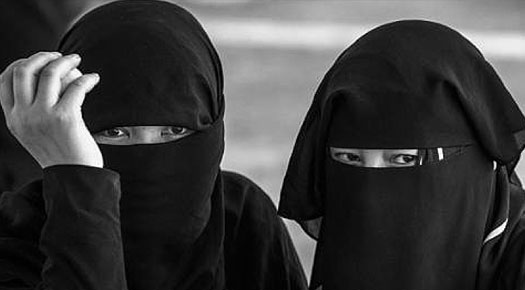
Chinese authorities have banned women from wearing the burqa in Urumqi, which is the capital city of Xinjiang, an autonomous region where almost half the population is Muslim. The ban, which was proposed in December 2014, has now been approved by the regional legislature, though it is yet to be implemented. According to a statement on a government-run website, Muslim women in Urumqi cannot wear burqas in public.
While it is unclear when the ban would be put to effect, state media said modifications would be taken into consideration before the ban is implemented. The modifications are expected to be tabled during a meeting over the coming weekend.
One thing that is evident from this move, however, is that China’s minority Uighurs are likely to feel further alienated, as they believe the majority Han Chinese are already tearing their economy and culture apart. Since a group of Uighur Muslims launched an attack at a train station in Kunming last year, Chinese officials have stepped up measures against the minority group that they believe are comprised of potential extremists. Last year, Xinjiang had also banned civil servants and students from fasting during Ramadan. That was followed by the Xinjiang administration refusing any person wearing a burqa, hijab, niqab or large beard even from travelling by public buses.
Despite these measures, or perhaps because of them, attacks involving Uighurs have only increased over the past year. Recently, police shot down six attackers in Shule County, near Kashgar, after they were found trying to detonate a bunch of explosives. In August last year, militants attacked police in Shache County after killing as many as 100 residents.
“Burqas are not traditional dress for Uighur women. … The regulation is seen as an effort to curb growing extremism that forced Uighur women to abandon their colorful traditional dress and wear black burqas,” noted a local report.
These measures are likely to continue as long as the Chinese government believes its people will be safe if their religious expressions are restricted to the bare minimum.
Zhang Haitao, an activist based in Urumqi, said, “You can’t deprive the freedom of a small portion of people to maintain the stability of the society. But here, for a long time, the authorities have been kidnapping public opinion in the name of stability.”
Photo Credits: The Telegraph
